Chair of Landscape Economics
Welcome to the website of the Chair of Landscape Economics! Here you will find information on the courses offered, on staff members and on the research foci of the chair.
News and dates
Team-building workshop of the Landscape Economics working group at the Biological Station Hiddensee
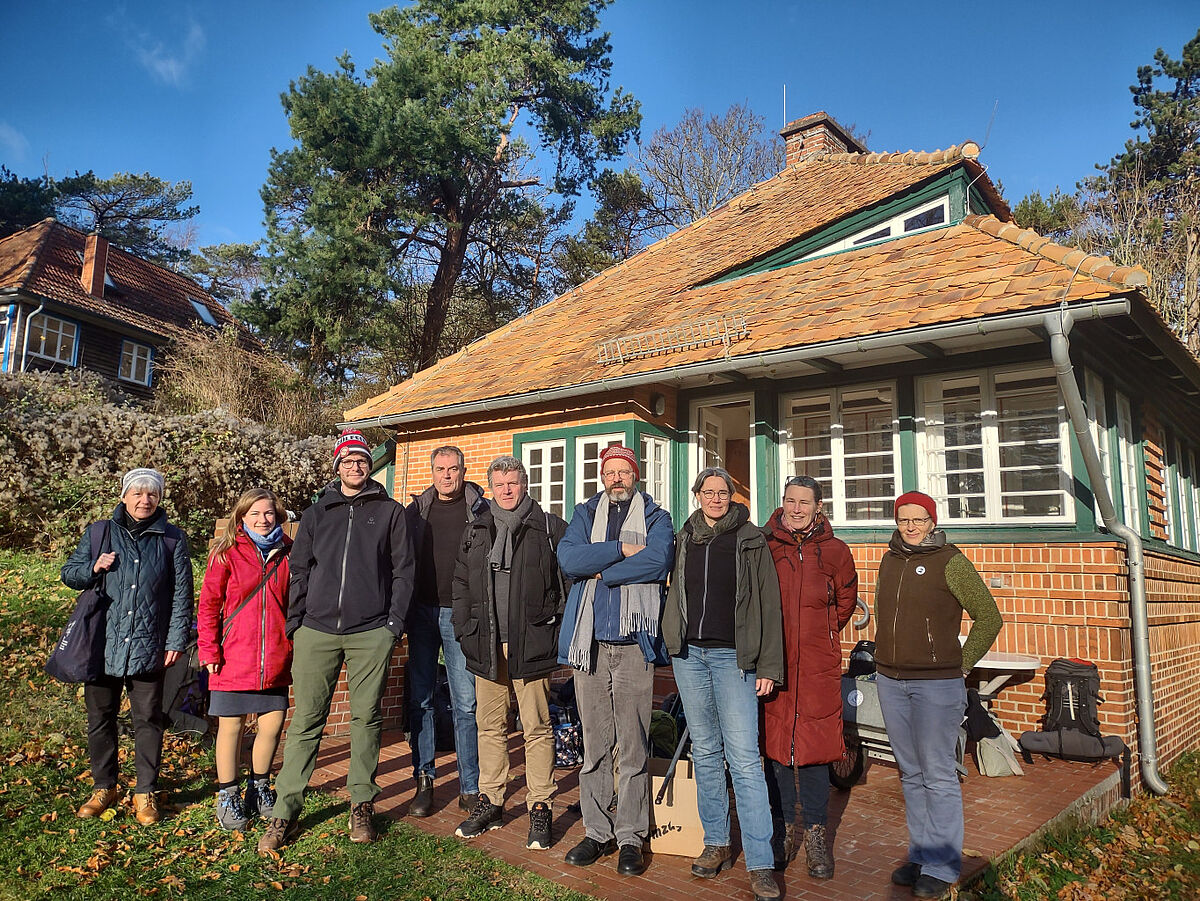
The Landscape Economics working group met for a team-building workshop on the island of Hiddensee off the coast of Rügen at the end of November 2023. The Biological Station of the University of Greifswald is located in the small village of Kloster on the almost 17-kilometre-long island. The group was able to stay in the cozy doctoral house here. After a lecture by Dr. Sven Dahlke on the history of the island of Hiddensee, the group was able to put their newly acquired knowledge to the test immediately afterwards in a special board game about the island. The weekend program included a visit to the beach and a trip to the Dornbusch lighthouse as well as relaxed cooking and board game evenings. What's not to forget, the weekend was right between the last autumn storms and an icy onset of winter, so apart from hail and wind, there were even a few hours of sunshine.
Final conference of the Vorpommern Connect project on July 03, 2023
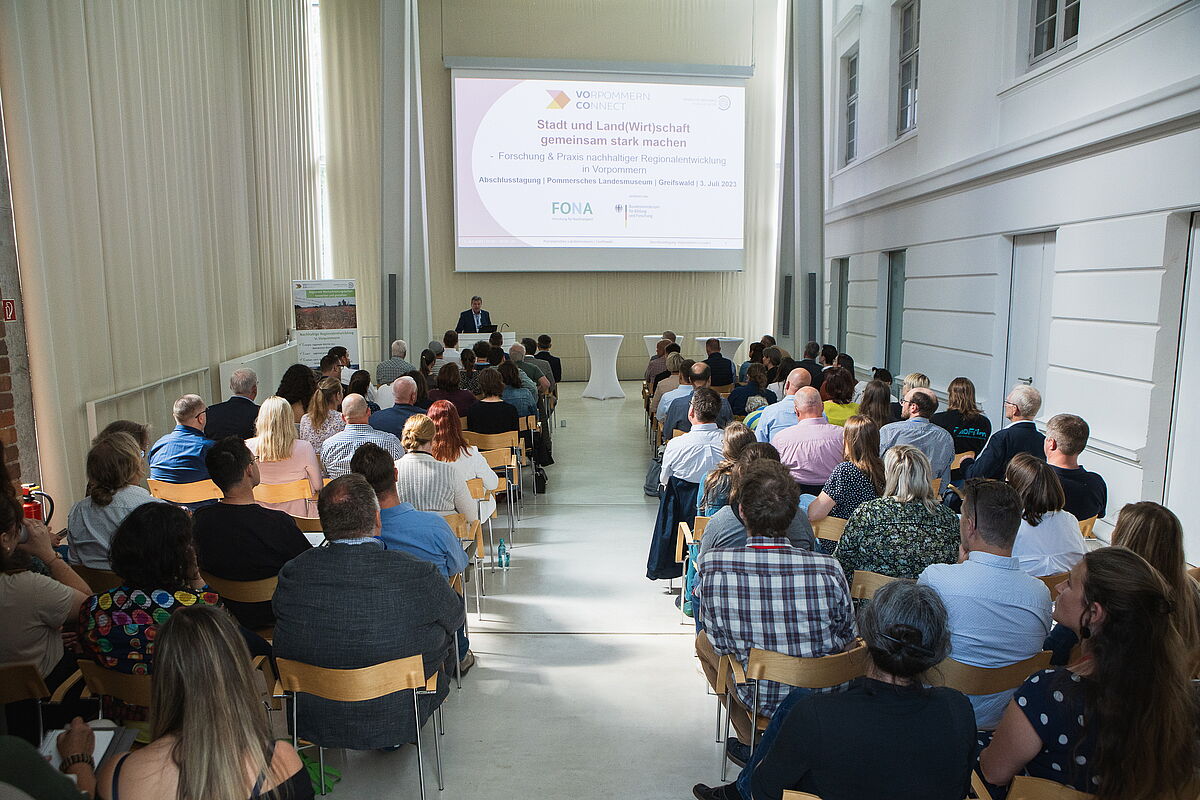
The Vorpommern Connect project is coming to an end. On July 3, 2023, the final conference took place in Greifswald on the premises of the Pomeranian State Museum.
There were not only scientific contributions from the project, but also specifically from practical partners of the project. This is precisely the approach that has been pursued over the last five years: networking stakeholders in the region and encouraging them to engage in joint exchange and discourse.
Further information and the presentations can be found under the following LINK.
Dr. Sabine Wichmann receives the Sustainability Award 2022 of the University of Greifswald
The rewetting of drained peatland sites is now also enshrined in the German government's National Peatland Conservation Strategy. Our colleague Dr. Sabine Wichmann dealt with the economic efficiency of paludiculture, i.e. the cultivation of wet sites, as part of her dissertation. On 21st of December 2022, she won this year's Sustainability Award of the University of Greifswald. On behalf of the Chair, we congratulate Sabine wholeheartedly and look forward to further research results from her.
Further information can be found under the following LINK.
Water buffalo management on rewetted peatland sites
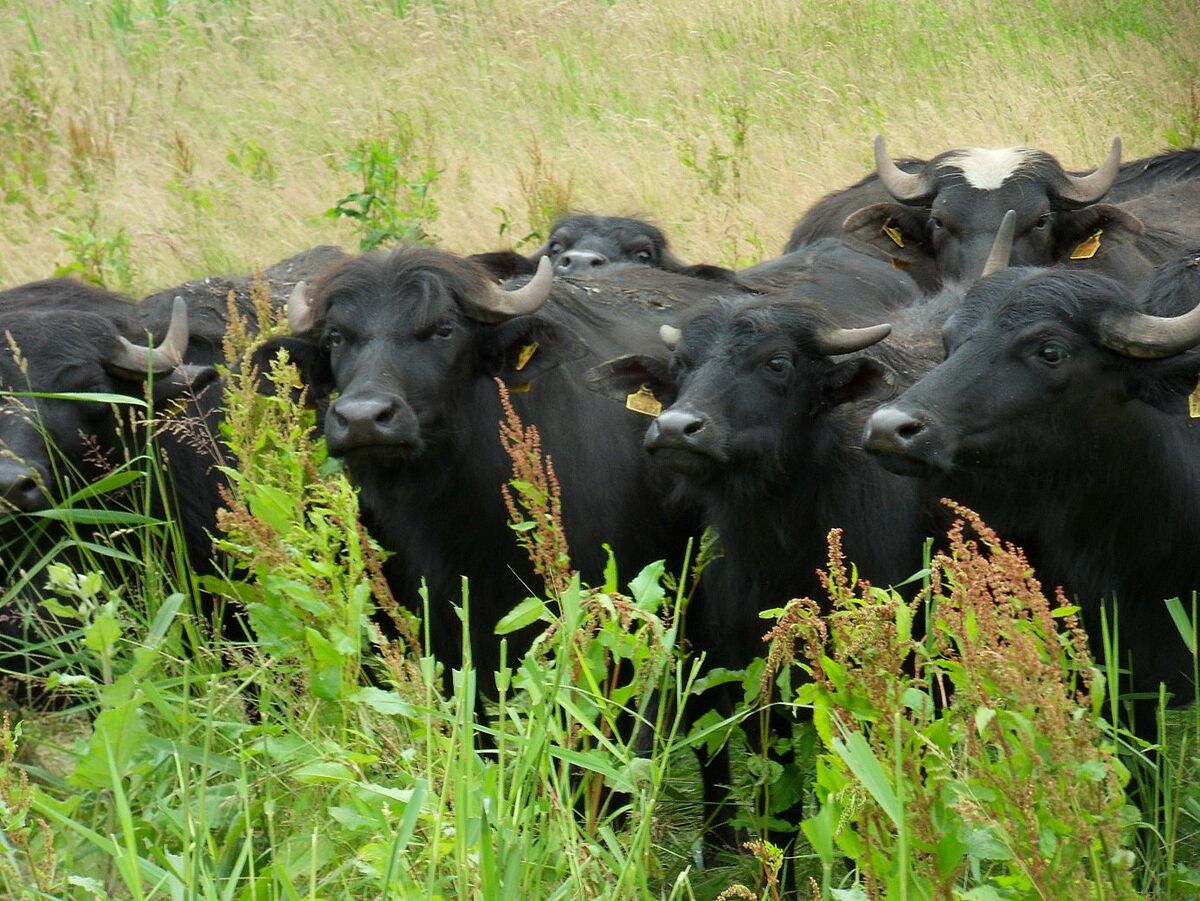
Alongside forests, peatlands are a major carbon store. However, when peatlands are drained for agricultural use, much of the stored CO2 is emitted. A peatland loses about 1 cm in thickness per year of drainage. If rewetting takes place, the peatland gains approx. 1 mm in thickness per year under good conditions. This clearly illustrates the urgent need for action in the field of peatland conservation and shows that rapid action on the part of humans is necessary for the conservation and preservation of peatlands. A number of projects in the peatland-rich federal states such as Mecklenburg-Western Pomerania are already addressing this issue and trying to find solutions in cooperation with nature and regional farmers.
One of these projects is investigating the possible agricultural use of rewetted areas by keeping water buffalos. You can find an interesting NDR report on this topic under following LINK.
Urban-Rural-Plus symposium on 15th of September 2022 at the University of Rostock
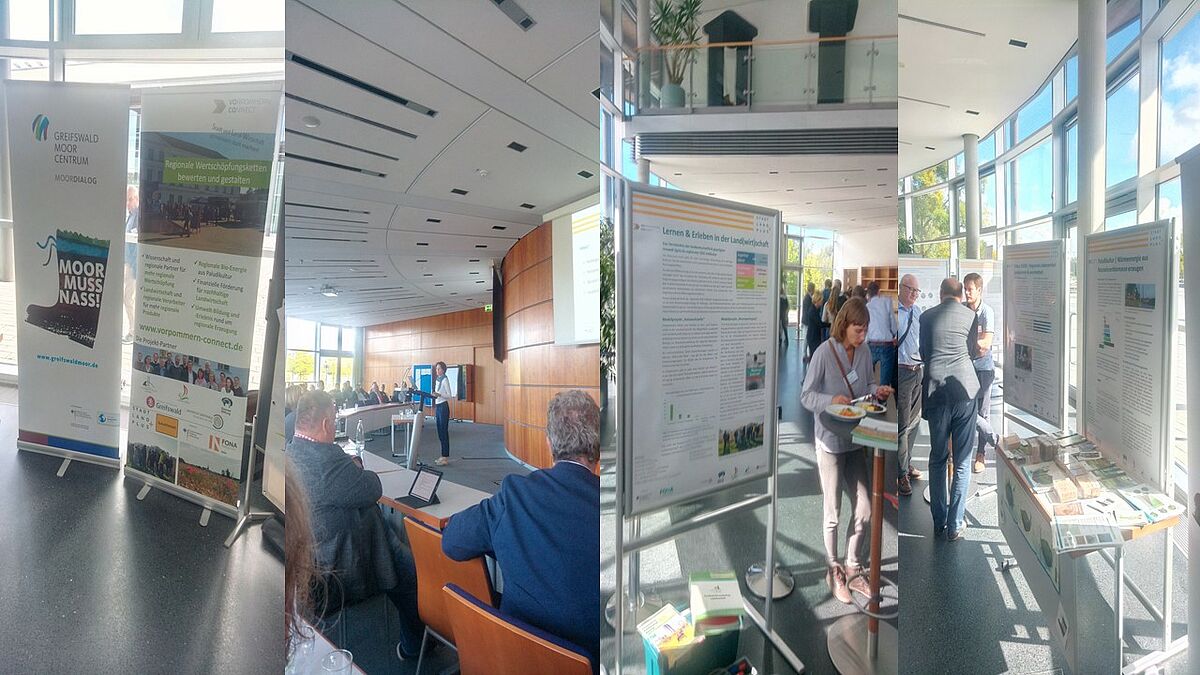
GOOD URBAN-RURAL-RELATIONS FOR SUSTAINABLE DEVELOPMENT IN MV
At the symposium in Rostock, we were treated to a number of informative and exciting presentations. In addition to the presentations, the discussions with regional stakeholders were particularly enriching for us and the VorpommernConnect project.
If you are interested in individual presentations, please take a look at the conference proceedings under the following link.
An informative video of the event has also been produced.
The 5th International Workshop on Archetype Analysis in Sustainability Research
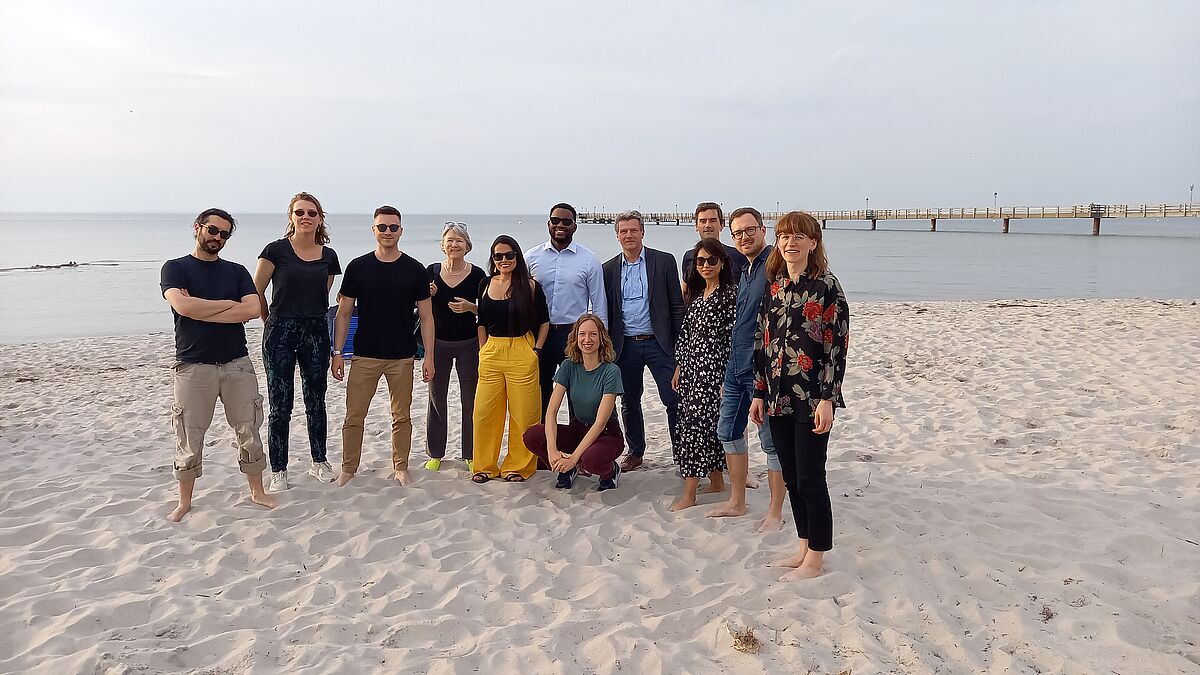
The 5th International Workshop on Archetype Analysis in Sustainability Research was successfully conducted in Greifswald from 18-20 May 2022. The participants who joined in Greifswald and online were from a range of countries including Sweden and the US. Also new researchers joined the workshop, further extending the international network of archetype research. The participants presented and discussed ongoing research particularly on the Sustainable Development Goals, methodological advances and emerging topics in archetypes research.
New Book: Transitioning to Sustainable Life on Land
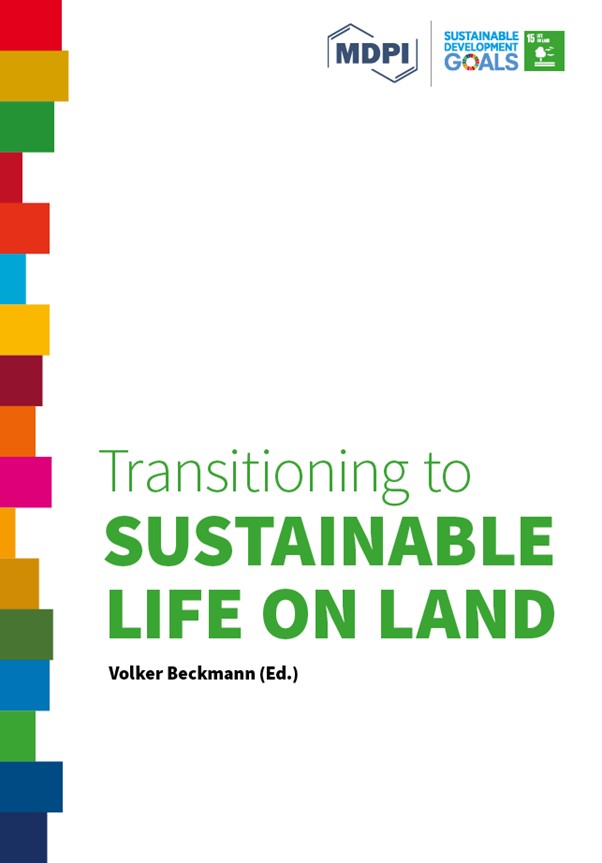
Please check the new MDPI open access book Transitioning to Sustainable Life on Land edited by Prof. Dr. Volker Beckmann. Fifteen outstanding contributions reflect on the political, economic, and societal transformations needed to achieve the United Nation’s Sustainable Development Goal 15, which calls for the protection, restoration, and promotion of sustainable use of terrestrial ecosystems.
Final workshop BMBF-project IliLive October 07th to 08th 2021
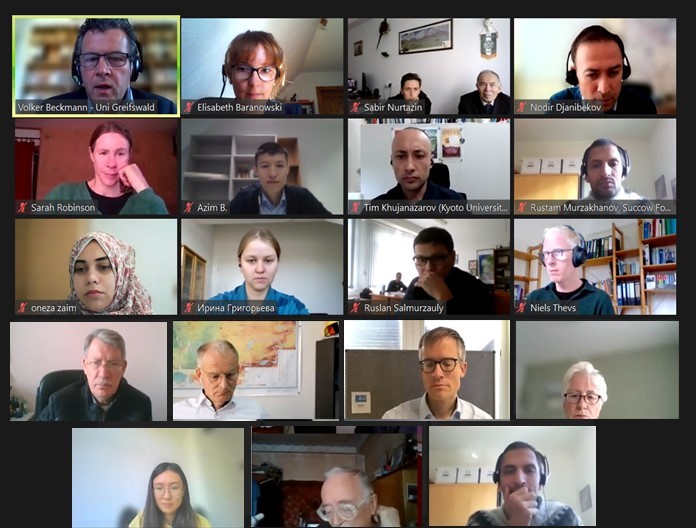
The objective of the BMBF-project “Livestock farming in the Ili-Delta under varied water flow - effects on food security and adaption strategies” (Ili-Live) is an assessment of threats to livestock farming systems and, therefore, to the food security in the Ili-Delta under varying water inflow. The research project aims to develop appropriate measures in the field of water, pasture and fodder management at operational, local as well as regional level to reduce these threats.
The project started in November 2018. After the kick-off workshop in February at Al-Farabi Kazakh National University (www.kaznu.kz) in Almaty, extensive fieldwork was carried out in the Ili Delta as the main study area and in the Amu Darya Delta as a comparative region during the summer 2019. Next to experienced researchers, we integrated junior scientists as well as bachelor and master students from University of Greifswald, Al-Farabi University, and Kazakh National Agrarian University. Unfortunately, the project stopped due to the corona restrictions in the following year 2020. The last face-to-face meeting of the project consortium was at the mid-term workshop at the University of Greifswald in October 2019. Planned study visits of Kazakh Matser students and young scientists, and fieldwork in the delta regions could not take place or had to be organized differently. Fortunately, our project partners were able to complete investigations and data collections in the delta regions during the summer of 2021.
In October 2021, the final workshop took place digitally as a Zoom event with an international audience. On the first day, the project team presented research results. Then, Prof. Martin Petrick from the University of Giessen opened the second day with a keynote speech on questions about livestock in Kazakhstan. Following recommendations for the water, pasture, and fodder management at the local and regional level were discussed by the participants, including Ardakuly Aibar (Chief specialist, Agricultural Department Balkhash district), Vladimir Levin (Director NGO Farmer of Kazakhstan Foundation), Alexander Barnewirtz (Team leader German-Kazkah Dialogue on Agricultural Policy), and many more.
The event concluded with a networking session. Scientists, as Prof. Sabir Nurtazin (Al-Farabi University), Prof. Kristina Toderich (ICBA-CAC), Dr. Sarah Robinson (University of Giessen), Dr. Nodir Djanbekov (IAMO), Makhmud Shaumarov (FAO), and Rustam Murzakhanov (Succow Foundation) gave a speech on their current and planned research projects and activities. Overall, it was a successful project completion.
We would like to thank the participants for their valuable contributions and interesting discussions!
Furthermore, we would like to thank our project partners Prof. Sabir Nurtazin, Al-Farabi University, Prof. Kuat Nurgazy, Kazakh Agricultural University, Prof. Kristina Toderich, International Center for Biosaline Agriculture (ICBA-CAC), Dr. Niels Thevs, Agroforestry Center, and the business collaborate Merigali Kassymbekov for fruitful cooperation over many years.
AgoraNatura launches: Germany's first independent marketplace for certified nature conservation projects
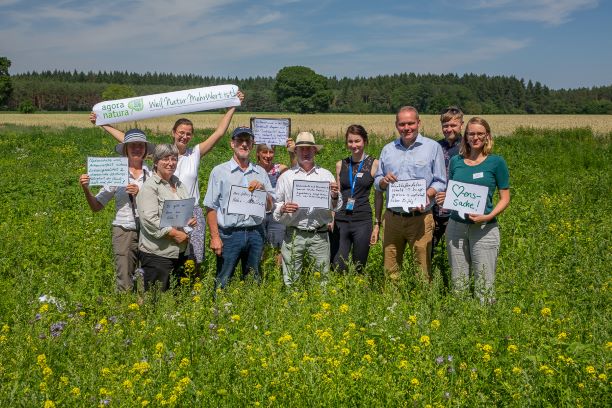
Targeted donations from committed private individuals or environmentally conscious companies can support projects like this one in Prignitz.
Neue Publikationen
Sietz, D. and Neudert, R. (2022) Taking stock of and advancing knowledge on interaction archetypes at the nexus between land, biodiversity, food and climate. Environm Res Letters, https://doi.org/10.1088/1748-9326/ac9a5c,
Wichmann, S., Nordt, A., Schäfer, A. (2022): Lösungsansätze zum Erreichen der Klimaschutzziele und Kosten für die Umstellung auf Paludikultur. Hintergrundpapier zur Studie „Anreize für Paludikultur zur Umsetzung der Klimaschutzziele 2030 und 2050“. Hg. v. Deutsche Emissionshandelsstelle im Umweltbundesamt (DEHSt). Berlin. https://www.dehst.de/SharedDocs/downloads/DE/projektmechanismen/Hintergrundpapier-loesungsansaetze-paludikultur.pdf
Nordt, A., Wichmann, S., Risse, J., Peters, J., Schäfer, A. (2022): Potenziale und Hemmnisse für Paludikultur. Hintergrundpapier zur Studie „Anreize für Paludikultur zur Umsetzung der Klimaschutzziele 2030 und 2050“. Hg. v. Deutsche Emissionshandelsstelle im Umweltbundesamt (DEHSt). Berlin. https://www.dehst.de/SharedDocs/downloads/DE/projektmechanismen/Hintergrundpapier-hemmnisse-paludikultur.pdf
Stachowicz, M., Manton, M., Abramchuk, M., Banaszuk, P., Jarašius, L., Kamocki, A., Povilaitis, A., Samerkhanova, A., Schäfer, A., Sendžikaitė, J., Wichtmann, W., Zableckis, N., Grygoruk M. (2022). To store or to drain—To lose or to gain? Rewetting drained peatlands as a measure for increasing water storage in the transboundary Neman River Basin. Science of The Total Environment, 154560. https://doi.org/10.1016/j.scitotenv.2022.154560
Espinosa‐Molina, M., & Beckmann, V. (2022): Contrasting two methods, attitudinal and monetary, to assess support changes toward wildlife species by urban dwellers. Conservation Science and Practice, e12661. https://doi.org/10.1111/csp2.12661
Piemontese, L., Neudert, R., Oberlack, C., Pedde, S., Roggero, M., Buchadas, A., ... & Sietz, D. (2022): Validity and validation in archetype analysis: Practical assessment framework and guidelines. Environmental Research Letters. https://iopscience.iop.org/article/10.1088/1748-9326/ac4f12/pdf
Contact
Chair of Landscape Economics
Chairholder
Prof. Dr. Volker Beckmann
Office hours: only after agreement
Secretary's office:
Imma Eckardt
Office hours: Monday - Thursday: 9:00 - 14:00
Soldmannstraße 15
17487 Greifswald
Telefon +49 3834 420 4115
Telefax +49 3834 420 4107
